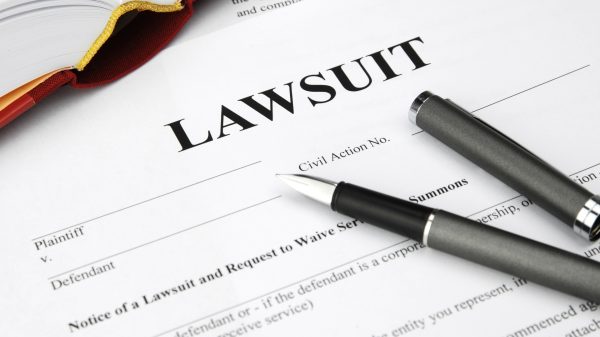|
Getting your Trinity Audio player ready...
|
A group of incarcerated Alabamians alleging that Alabama uses prisoners as forced labor is now calling on the court to address the state’s declining parole rate.
The motion, filed by six plaintiffs in Robert Earl Council aka Kinetic Justice v. Kay Ivey, seeks a preliminary injunction against Gov. Kay Ivey, Attorney General Steve Marshall and members of the Alabama Board of Pardons and Paroles, and challenges the Parole Board’s implementation of 2019 amendments to Alabama’s Justice Reinvestment Act as violative of the Ex Post Facto Clause of the U.S. Constitution.
“We’re doing everything we’re supposed to do to get back to our families,” said Arthur Ptomey, Jr., a plaintiff in the lawsuit, in a press release Thursday. “I’m guilty of my crime — and yes, I do believe I deserve another chance. I believe no one, though, is getting a fair chance or a fair hearing from this Parole Board to demonstrate we are ready and fit to return to supporting our families and our communities.”
The declining parole grant rate has been well publicized. Since 2019, granted paroles have plummeted to under 10 percent of applicants being released.
The motion seeks injunctive relief requiring the Parole Board to “return to the structured, evidence-based decision making which delivered race-neutral parole decisions based on objective standards for fitness for release, as required by Alabama law.” The motion also demands that all parole decisions made since October 2019 be reviewed and replaced expeditiously with “lawful parole grant decisions based on the parole practices and guidelines in place prior to the commencement of this unlawful change in parole practices.”
The motion comes a week after a group of 10 current and former incarcerated Alabamians, two labor unions (the Union of Southern Service Workers and Retail, Wholesale and Department Store Union, Mid-South Council) and civil rights organization The Woods Foundation filed a federal class action lawsuit challenging a forced labor scheme in Alabama state prisons that generates $450 million in annual benefit for the state.
“Plaintiffs are at risk and deprived of their liberty every day they remain in [Alabama Department of Corrections] facilities,” the motion reads. “They have demonstrated their eligibility for parole and are entitled to have their applications for parole considered pursuant to factors not infected with racial discrimination or Defendants’ unconstitutional, after-the-fact decision to impose stricter terms.”





















































